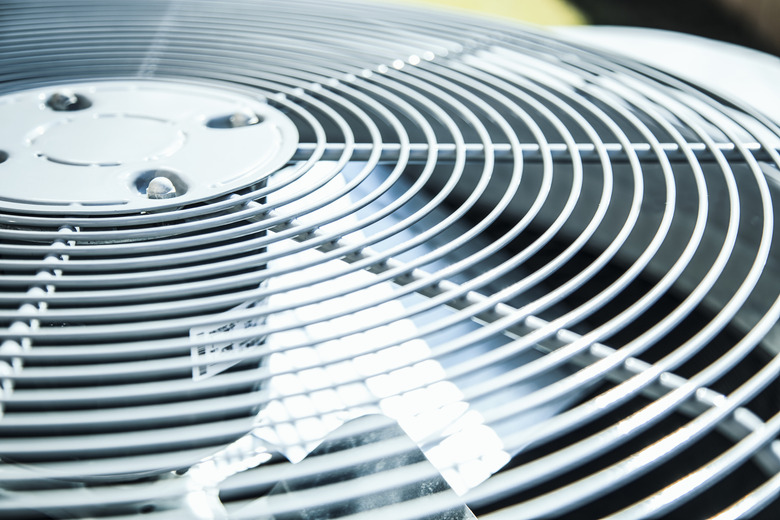What Causes A Capacitor To Go Bad In An A/C Unit?
We may receive a commission on purchases made from links.
Air conditioners use capacitors to store electrical energy, which helps the unit turn on when needed. Capacitors can go bad in an A/C unit for a variety of reasons. A bad A/C capacitor keeps the system from working properly, which can make your home warmer than you want, and forces the system to work harder.
Tip
Several things can cause an air conditioner capacitor to go bad, including overheating, electrical overload, worn parts, damage, and old age.
Purpose of Capacitors
Purpose of Capacitors
Capacitors store and release energy as needed within a circuit. Larger capacitors generally have higher current load-handling ability and greater charge storage capacity. These properties are well suited for air conditioning machinery because some A/C compressor motors need a pulse of energy 300 to 500 percent of normal to get them going. A start capacitor is used for this application. Other electric motors in the system use smaller run capacitors to keep them spinning at optimum speed.
Three Air Conditioner Motors
Three Air Conditioner Motors
The air conditioning system has an electric blower motor indoors that circulates the cool air, an electric condenser fan motor outdoors to exhaust the hot air, and a compressor motor that pumps the refrigerant through the system. Each motor uses a capacitor to get it started when the thermostat switches the A/C on, and often to keep the motors running at maximum efficiency. The compressor capacitor is the largest, since the compressor requires a lot more energy than the other two motors.
Overheating A/C Capacitor
Overheating A/C Capacitor
The electrolytic A/C capacitor contains a moist separator inside and it will dry out of the unit gets too hot, causing it to develop an internal short circuit. The capacitor can fail if its temperature routinely goes above 150 degrees Fahrenheit. Overheating can happen due to heat from the sun or from the A/C unit working extra hard for an extended time. This is more likely to happen on a very hot day when the A/C has to work harder to cool your home.
Worn, Damaged Parts
Worn, Damaged Parts
The capacitor must disengage after a few seconds or it will overheat. A compressor or fan motor that drags due to damage or worn bearings might cause the capacitor to burn up. A malfunctioning relay switch can also cause the capacitor to overheat by leaving it in the circuit too long.
Lightning can damage a capacitor, A/C compressor, fan motor, or the wires in the unit. Even a weak power surge can damage or destroy the capacitor, which can lead to compressor overload and subsequent failure. A capacitor that's leaking oil is a sure sign that it has a problem.
Capacitor Electrical Overload
Capacitor Electrical Overload
The air conditioner capacitor is designed to get the compressor and fan motors up to about 3/4 of running speed and then disengage. It's not designed for a continuous electrical load. If the motor becomes physically blocked from turning or if the motor burns out, the capacitor will probably overload and be destroyed. Voltage above the rated value for the capacitor might also destroy it. For example, a power surge from a lightning strike would cause a severe current spike and probably "fry" the capacitor.
Capacitor Life Expectancy
Capacitor Life Expectancy
An A/C capacitor that is protected from damage, electrical surges, overheating, or incorrect electrical loads will eventually fail due to normal wear. The life expectancy of an A/C capacitor varies with the climate and usage pattern, but a typical rating is about six years. Sometimes you need to replace the A/C capacitor due to old age simply because it's surpassed its useful life.
